Gardening is not just about having a green thumb; it’s a journey of discovery, learning, and growth. In this guide, I will provide you with all the essential information of gardening, including valuable tips, techniques, and the countless benefits it offers. Whether you’re a novice or an experienced gardener, there is always something new to learn and experiment with.
Learning from failures is a crucial part of mastering the art of gardening. It’s common for beginners to make mistakes, and that’s okay. Don’t be discouraged; instead, learn from these experiences to become a better gardener. With the help of internet resources, local garden centers, and Master Gardener classes, there is no shortage of information and advice to improve your gardening skills.
Key Takeaways:
- Gardening is a journey of growth and learning.
- Learning from failures is a crucial part of gardening.
- The internet, local garden centers, and classes offer a wealth of resources for gardening advice and information.
Everyone Kills Plants: Learning from Failure
Let’s debunk a myth right from the start: even experienced gardeners have killed their fair share of plants. Don’t be discouraged if your green friends wither away – it’s all part of the journey to becoming a master gardener.
Many people believe that they have a “black thumb” and can’t grow plants successfully. However, it’s important to understand that everyone kills plants at some point, and these failures can actually be valuable learning opportunities. Each time a plant dies, it presents a chance to figure out what went wrong and improve for the next time.
Fortunately, learning how to care for plants is just one Google search away. There are numerous online resources and local garden centers that can provide advice and guidance. Master Gardener classes are also available for those who prefer a more personal touch. The internet is a valuable tool for purchasing gardening items as well.
Gardening is not meant to be easy. It is a challenge and a mystery, but the satisfaction of growing your own vegetables, for example, is unmatched. Gardening teaches patience, perseverance, and the joy of accomplishment.
It’s important to view gardening as a fun activity, rather than a chore. Make your garden a reflection of your own preferences and interests. Container gardening can be especially enjoyable, as it eliminates the problem of weeds and allows for greater creativity in design. Furthermore, spending time in your own garden can be a pleasurable experience, especially with the addition of stylish lampposts for evening dining and entertaining.
Giving your garden a good start is crucial for success. Using a quality potting mix and regularly monitoring the progress of your plants are important steps. If necessary, clearing out unnecessary plants and shrubbery can provide additional space for your gardening endeavors.
Gardening offers a range of health benefits, including exposure to vitamin D, exercise, cancer protection, and the enjoyment of homegrown produce and flowers. Even for beginners, planning and choosing the right plants for your climate and conditions is essential. It is recommended to start with easy-to-grow plants like lettuce and tomatoes.
Equipping yourself with the necessary gardening tools, such as a good shovel, hand trowel, pruning shears, and gloves, can make the process more enjoyable. Selecting the right spot for your plants, whether in the ground or in containers, is crucial. Good access to sunlight, quality soil, and water is important for the health of your plants.
Preparing the soil with compost or organic matter can optimize drainage and improve overall soil quality. Fertilizing plants with a low-nitrogen, slow-release fertilizer can provide essential nutrients. Following the instructions on seed packets or plant tags for planting and spacing are vital for proper growth. Regular weeding is necessary to prevent weeds from choking out your plants.
Gardening can have a profound impact on your well-being. It connects you with nature, slows down the pace of life, and provides therapeutic benefits. Growing your own food can also change your perspective on fresh and flavorful produce.
Caring for plants can lead to greater environmental awareness. Many people find themselves adopting more sustainable practices, such as reducing waste and transitioning to a plant-based lifestyle. Making small steps towards a more eco-conscious lifestyle is achievable and can inspire others to do the same.
In summary, learning from the failures and challenges of gardening is essential for success. With the right resources, tools, and mindset, anyone can develop a green thumb and enjoy the rewards of a flourishing garden.
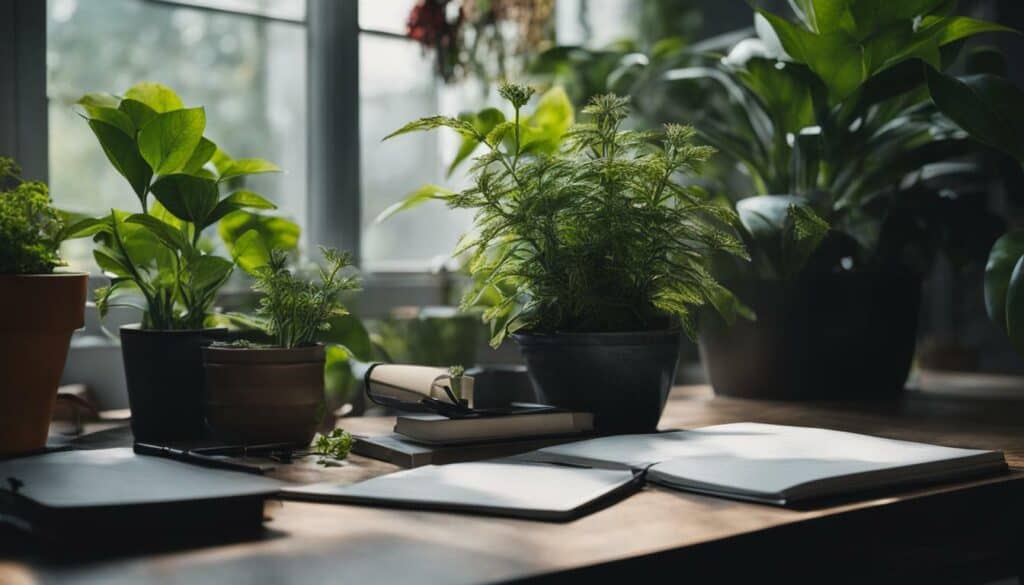
The Internet: Your Gardening Guru
In today’s digital age, the internet has become an invaluable resource for gardeners of all skill levels, offering a treasure trove of information, expert advice, and a vast selection of gardening products just a few clicks away. The internet has revolutionized the way we approach gardening, making it easier and more accessible than ever before.
Gone are the days of flipping through gardening books or relying solely on trial and error. With just a few keystrokes, gardeners can access a wealth of gardening advice, tips, and techniques from experts around the world. Online forums and social media groups allow gardeners to connect with like-minded individuals and share their successes and failures, learning and growing from each other’s experiences.
But the internet isn’t just a place for learning and connecting – it’s also a convenient marketplace for purchasing gardening items. From seeds and plants to tools and accessories, online retailers offer a vast selection of gardening products, often at lower prices than brick-and-mortar stores. Shopping online also allows gardeners to easily compare prices and read reviews, making informed purchases without ever leaving their homes.
With so many online gardening resources available, there’s never been a better time to start gardening. Whether you’re a seasoned pro or a beginner, the internet can help you develop your skills, learn from your mistakes, and create the garden of your dreams. So why not take advantage of all that the internet has to offer and let it become your gardening guru?
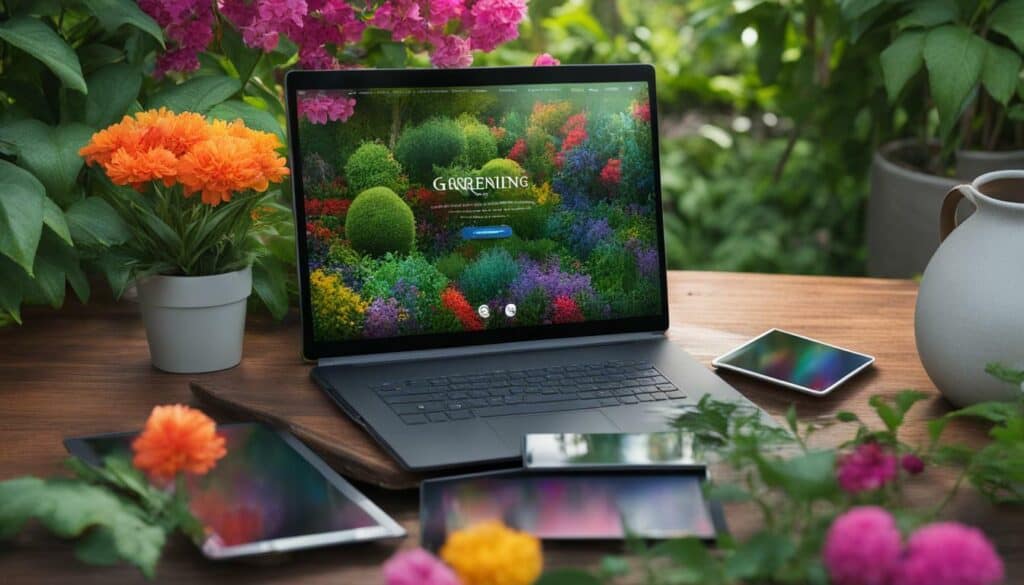
Gardening: A Challenge and a Mystery
Gardening is not just about making things grow; it’s a challenge that engages your mind, sparks curiosity, and fills you with a sense of accomplishment when you witness the transformation of a tiny seed into a flourishing plant. Many people believe they have a “black thumb,” but the truth is that everyone kills plants. The key is to learn from your mistakes and keep trying.
Fortunately, gardening advice is just a Google search away. There are also local garden centers and Master Gardener classes that can provide guidance. Gardening is a challenge and a mystery because some plants thrive while others struggle, but the satisfaction of growing your own vegetables from seed is worth it.

Gardening should be seen as a fun activity, not a chore. By making your garden a personalized space and embracing container gardening, you can enjoy the process and the fruits of your labor. Giving your garden a good start with quality potting mix and regularly monitoring its progress is crucial.
Gardening is a healthy hobby that offers vitamin D, exercise, and protection against certain cancers. Planning your garden based on your climate and finding out what can grow in your area is essential. Starting with easy plants like lettuce and tomatoes is recommended for beginners. Having the right gardening tools, selecting the right spot for your plants, and improving your soil with compost or organic matter are key to successful gardening.
Fertilizing plants and regularly weeding are important for their growth. Gardening has numerous benefits, including stress reduction, therapeutic effects, and bringing us closer to nature. Additionally, growing your own food allows you to experience the fresh flavors of fruits and vegetables. Gardening can also lead to increased environmental awareness and a more sustainable lifestyle.
Gardening expert Nick Cutsumpas has found success as a plant coach, sharing his love for plants and helping people care for their own greenery. He believes that interacting with plants can slow us down in our fast-paced world and bring us happiness and healing. Through his own journey, he has become more environmentally conscious and advocates for small steps towards a more sustainable lifestyle.
A Fun and Rewarding Activity
Beyond the challenges, gardening is an incredibly fun and rewarding activity that not only beautifies your outdoor space but also teaches you the virtues of patience, perseverance, and the joy of watching life unfold. One of the most significant benefits of gardening is the sense of satisfaction that comes from nurturing plants from seedlings to maturity.
Starting small is key, and it’s essential to view gardening as a fun activity rather than a chore. Creating a garden that reflects your personal taste and interests can make it an enjoyable and fulfilling experience. Remember that everyone kills plants and learns from failure, so don’t be discouraged if your first attempts don’t go as planned.
Whether you are a beginner gardener or an experienced one, the internet is a valuable resource that provides a wealth of information and advice. Utilizing online resources for advice and purchasing gardening items can help you stay on track and learn from others who have gone before you.
Patience and perseverance are also essential virtues to cultivate when gardening. You need to give your plants time to grow and develop, and this requires patience. Regularly checking on your plants and taking the time to provide them with the care they need is necessary for gardening success. It’s also important to remember that gardening is not a one-time activity but rather a continuous process that requires effort and commitment.
Gardening is not just a fun and rewarding activity; it also provides various health benefits. Spending time outside in the sun while gardening can help you get the Vitamin D your body needs. Gardening can also be a good workout, and it provides protection against certain diseases, such as breast, colon, and lung cancer.
Furthermore, gardening can lead to a stronger connection with nature and a more sustainable lifestyle. By growing your fruits and vegetables, you can reduce your carbon footprint and make a positive impact on the environment.
Overall, gardening is a fun and fulfilling activity that everyone can enjoy, regardless of their gardening skills. Remember to start small, be patient and persevere, view gardening as a fun activity, and explore the wealth of online resources available. The rewards of gardening are endless, and it’s up to you to start your gardening journey and discover them for yourself.
Giving Your Garden a Good Start
The key to a successful garden is giving it a good start, ensuring your plants have everything they need to thrive in their new environment. As a beginner, it’s essential to understand that everyone kills plants at some point, and that’s an excellent opportunity to learn and improve.
It’s easy to fall prey to misconceptions about gardening, but with proper resources and knowledge, anyone can have a successful garden. A quick Google search can yield an abundance of gardening advice for free. Local garden centers or Master Gardener classes can also provide personalized help for specific areas or plants.
Gardening is both a challenge and a mystery, but the satisfaction and sense of accomplishment are worth it. It’s essential to see gardening as a fun activity personalized to your preferences rather than a chore. To give your garden a great start, use high-quality potting mix, and monitor your plants regularly.
Planning and choosing the right plants for your climate and sunlight exposure is crucial. Having the right tools like a shovel and gloves can make gardening easier. Choosing the right location, whether in the ground or in containers, is important for plant growth. Enhancing soil quality and fertilizing plants are vital for their health. Planting correctly and keeping up with weeding are necessary steps.
Along with physical benefits, having plants in your life has numerous mental-health benefits. Being around nature has a calming and therapeutic effect. Gardening can also help build environmental awareness and promote sustainable practices.
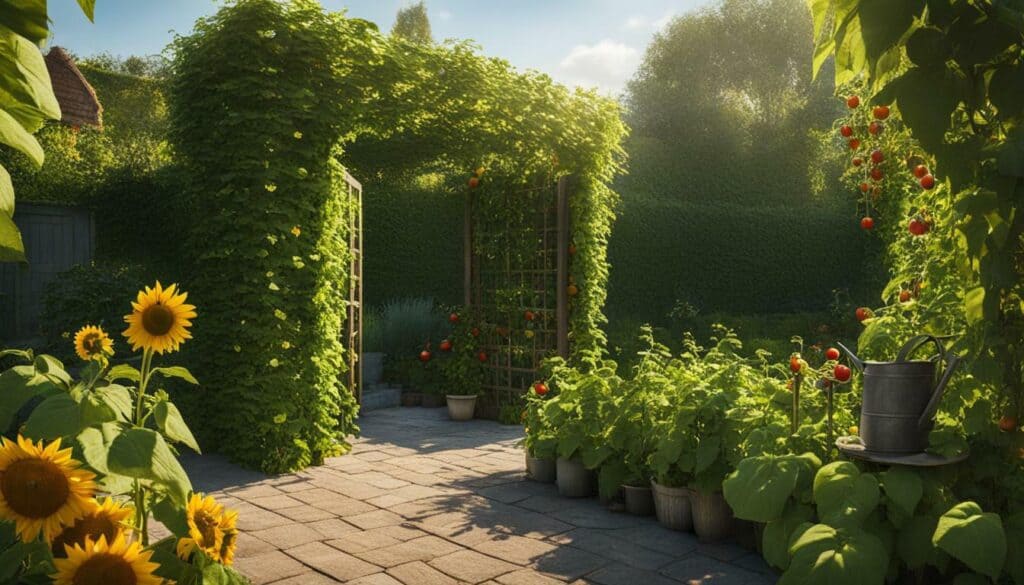
Starting a garden may seem daunting, but with a little patience and perseverance, it’s a fun and rewarding activity that provides numerous benefits.
The Health Benefits of Gardening
Gardening not only nourishes your soul but also offers numerous health benefits, from providing your body with essential vitamin D to potentially reducing the risk of certain cancers.
Exposure to sunlight is one of the most significant benefits of gardening. Our bodies rely on sunlight to produce vitamin D, which is essential for strong bones and a healthy immune system. Gardening offers a safe and convenient way to get the recommended daily dose of vitamin D.
Studies have also shown that gardening can help reduce the risk of certain types of cancer, such as breast, colon, and prostate cancer. The physical activity involved in gardening provides a good workout and helps maintain a healthy weight, which is crucial in preventing cancer.
In addition to the physical benefits, gardening can have a positive impact on mental well-being. It provides an opportunity to connect with nature, reduce stress, and improve mood. The act of nurturing plants and seeing them grow can bring a sense of calm and relaxation.
Gardening can also be a form of therapy for those struggling with anxiety, depression, or other mental health issues. The sense of accomplishment that comes with successfully growing plants can boost self-esteem and confidence.
Overall, gardening is a hobby that offers a range of health benefits. Whether you’re a seasoned pro or a novice, gardening is a fun and rewarding activity that can have a positive impact on physical and mental well-being.
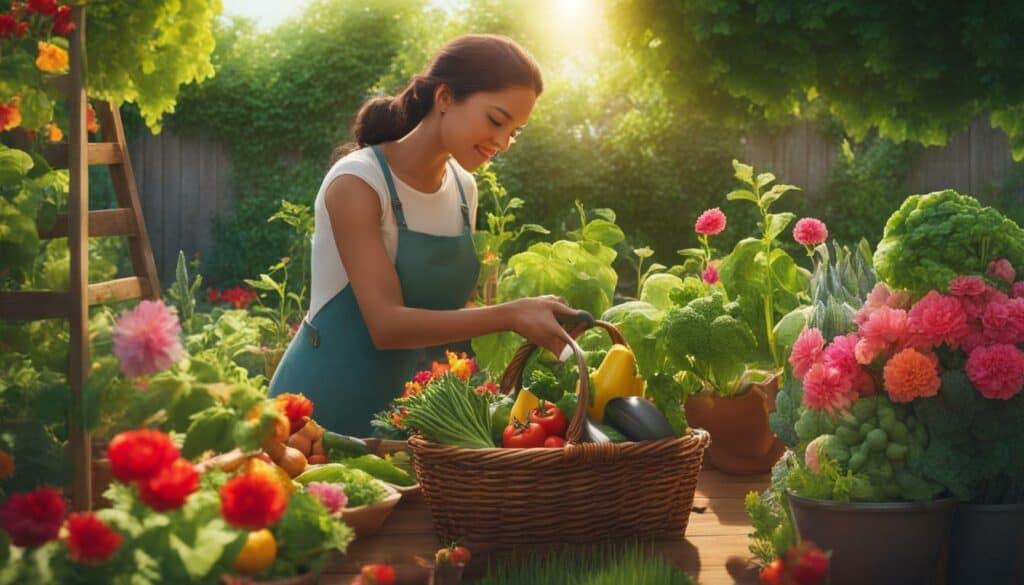
Planning and Choosing the Right Plants
Planning and preparation are crucial when it comes to gardening, ensuring that you choose the right plants that can thrive in your specific climate and equipping yourself with the necessary tools for success. Understanding your climate, soil type, and sunlight exposure will help you determine which plants are suitable for your garden.
When selecting plants, it is important to consider their growth habits, watering requirements, and disease resistance. Researching these factors before making a purchase will increase your chances of success in growing healthy plants. Choosing plants that are native to your region or similar in climate will also help ensure that they thrive in your garden.
Investing in the proper tools is also essential for successful gardening. A good shovel, hand trowel, pruning shears, and gloves are just a few of the necessary tools that every gardener should have in their arsenal. These tools will make planting, pruning, and harvesting much easier and more efficient.
The location of your garden is also important. It should have access to sunlight, quality soil, and water. If your soil is not ideal, it can be improved with organic matter or specific planting mixes for containers. Fertilizing plants with low-nitrogen, slow-release fertilizers can provide essential nutrients.
Proper planting, watering, and weeding are important for plant growth. It is important to water your plants deeply and regularly, but not overwater them, as this can lead to root rot. Weeding is important to prevent competition for nutrients and water. Regular monitoring and care of your plants will help ensure their health and success.
Gardening with plants not only improves the environment but also offers therapeutic benefits and encourages a connection with nature. By caring for plants, individuals become more conscious of their impact on the environment, leading to sustainable practices like being low-waste and plant-based. Gardening is a journey that starts with small steps and can have a positive impact on individuals and the planet.
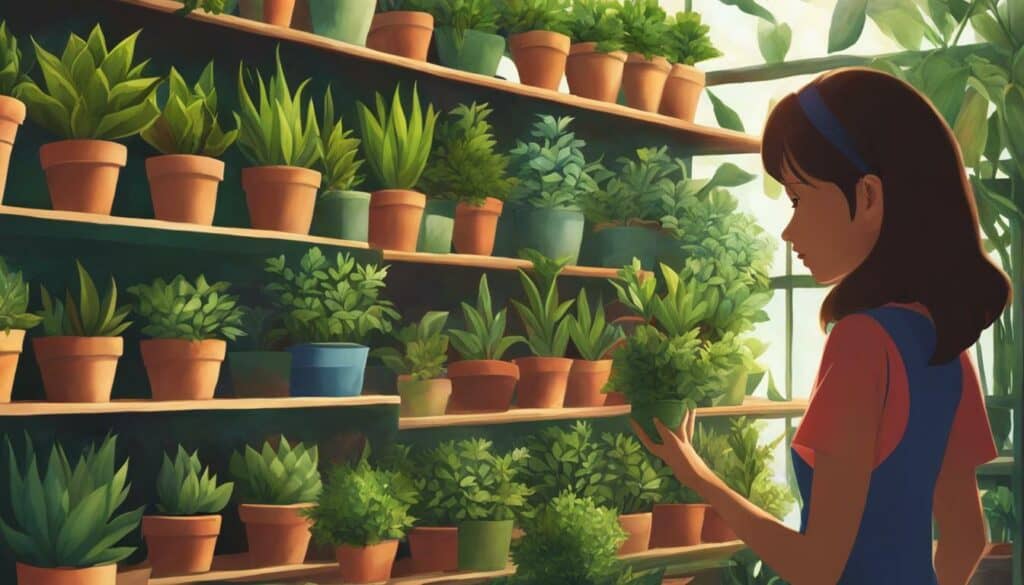
Soil Preparation, Fertilizing, and the Importance of Weeding
A flourishing garden starts with healthy soil, proper fertilization, and the diligence to keep weeds at bay – essential tasks that lay the foundation for a thriving botanical paradise.
Preparing your soil is the first step towards growing a successful garden. The quality of soil is vital, and adding compost or organic matter can improve its drainage and nutrient content. Before planting, be sure to test the pH of your soil to determine its acidity levels, which can affect the growth of your plants.
Fertilizing is also crucial for the health and growth of plants. Low-nitrogen, slow-release fertilizers are recommended for most gardens. Be careful not to over-fertilize, as this can cause damage to your plants. When it comes to weeding, regular attention is required to prevent weeds from overtaking your garden. Removing larger weeds by hand is best, as it can prevent damage to nearby plants, while smaller weeds can be removed using a hoe or other weeding tools.
| Soil Preparation | Fertilizing | Weeding |
|---|---|---|
| Test soil pH Add compost or organic matter for soil improvement Ensure good drainage | Use low-nitrogen, slow-release fertilizers Apply according to instructions Be careful not to over-fertilize | Remove larger weeds by hand Use hoe or other weeding tools for smaller weeds Remove weeds regularly to prevent overgrowth |
By following these essential steps, your garden will be off to a great start. Remember to monitor the progress of your plants, checking for any signs of disease or pests. Gardening requires patience and diligence, but the rewards are worth it.
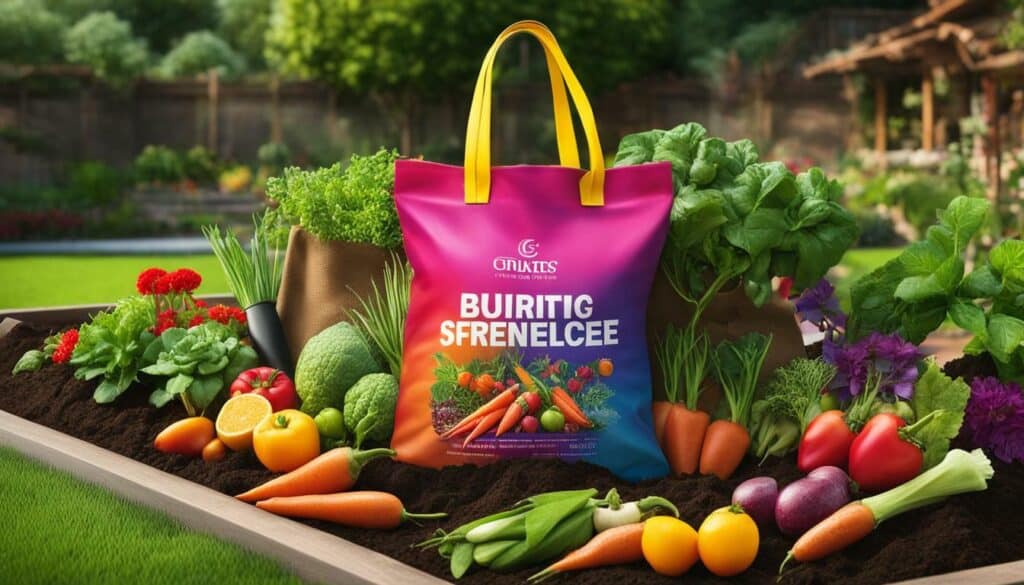
Not only does gardening offer a sense of satisfaction and accomplishment, but it also provides a range of health benefits. It promotes vitamin D exposure, exercise, and can even protect against certain cancers. Making sustainable changes and starting small can also positively impact the environment.
So, roll up your sleeves, grab your shovel and gloves, and get started on creating your own botanical paradise. With the right soil preparation, fertilization, and weeding, your garden is sure to thrive.
Success Story: From Passion to Plant Coach
Meet Nick, a dedicated gardener who turned his love for plants into a thriving business as a plant coach, helping others cultivate their own green havens. Nick discovered his love for gardening when his mother challenged him to start a garden in exchange for living rent-free. Starting with tomatoes, cucumbers, and zucchinis, his passion for gardening grew, and he expanded his garden to include a variety of vegetables and flowers.
Nick soon realized that he had a knack for plant care and began sharing his journey on Instagram. As his following grew, he started receiving requests for plant advice and coaching. Seeing an opportunity, he named himself Farmer Nick and started offering his services as a plant coach.
His business quickly took off, and he found himself juggling a full-time job with his plant coaching endeavors. In 2019, Nick was invited to compete on the Netflix show The Big Flower Fight, which further boosted his profile. With 75 plant coaching clients and a thriving Instagram presence, Nick decided to take a leap of faith and quit his job to focus on his plant coaching business full-time. He now helps clients with houseplants, vegetable gardens, and balcony and patio landscapes in both New York City and Los Angeles.
Nick believes that incorporating plants into our lives is a natural instinct that has been lost in the modern world. He emphasizes the therapeutic benefits of interacting with plants and how they can bring happiness and reduce stress. Furthermore, he promotes the cultivation of fruits and vegetables as a way to reconnect with fresh, flavorful produce and encourage sustainable living.
Through his own journey, Nick has embraced environmentally conscious practices, such as adopting a plant-based diet, minimizing plastic consumption, and opting for thrifted clothing. He hopes to inspire others to take small steps towards sustainable living and to use plants as stepping stones to a more environmentally aware lifestyle.
Farmer Nick’s success story is a testament to the power of following one’s passion and using it to create a meaningful business that positively impacts both people and the planet.
Plants for Mental Well-being and the Environment
Beyond their aesthetic appeal, plants have a profound impact on our mental well-being and the health of our environment, providing a sense of tranquility and inspiring us to make sustainable changes, one garden at a time.
Gardening is one of the healthiest hobbies that promotes mental and physical well-being. Research indicates that interaction with plants can reduce stress, depression, and anxiety. Cultivating plants can be an effective therapy that lowers blood pressure, decreases muscle tension, and improves mood. Interacting with plants can also slow down our fast-paced lives and have therapeutic effects, bringing happiness and helping with grief. Gardening can be a simple activity that can be learned with the help of resources available online or by contacting local garden centers.
In addition to mental well-being, plants also play a crucial role in environmental health. By growing your own plants, you can enjoy the health benefits of fresh produce while also reducing your carbon footprint. Plants produce oxygen, absorb carbon dioxide, and reduce air pollution. They also provide habitats for beneficial insects and birds that keep our ecosystems healthy and thriving.
Starting small is key when incorporating plants into your life. Begin with easy-to-grow plants to build confidence and skills. Consider using sustainable and organic practices that will benefit the environment and protect your health. Planning and choosing the right plants based on climate and sunlight exposure are crucial. Using the right tools, finding the right spot, and having good quality soil are important for plant growth. Fertilizing plants with low-nitrogen, slow-release fertilizer can provide essential nutrients. Regular weeding is necessary to protect plants from harmful weeds.
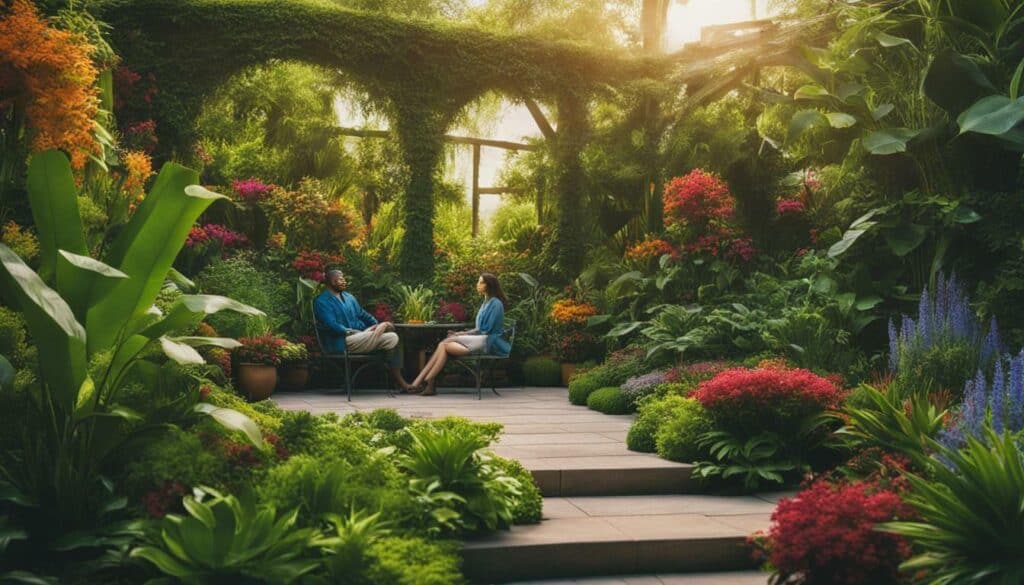
The process of caring for plants can lead to environmental awareness and adopting more sustainable practices. A garden can be a small space, but it can still have a big impact on the environment and our mental health. By embracing the benefits of gardening, we can cultivate a sense of connection with nature and create a healthier, happier world, one garden at a time.
Conclusion
In conclusion, mastering the green thumb requires a combination of knowledge, practice, and a willingness to embrace both successes and failures along the way. Killing plants is a normal part of the learning process, so don’t be discouraged by initial setbacks. Instead, view each failure as an opportunity for growth and improvement. Thanks to the abundance of information available online, it’s easier than ever to research and learn about gardening techniques and practices, regardless of your experience level.
Gardening is a challenge that offers a sense of mystery and satisfaction as you watch your plants thrive and produce. It’s also a fun and enjoyable activity that allows you to personalize your garden and create a space that reflects your own preferences and tastes. Giving your garden a good start by using the right potting mix and regularly monitoring your plants can help you develop a green thumb.
Gardening is also a healthy hobby that provides numerous benefits, such as exposure to vitamin D and a good workout. Incorporating plants into your life can bring a sense of peace and connection to nature. Furthermore, gardening can lead to a greater appreciation for fresh and flavorful produce and promote environmental awareness and sustainable practices.
By embracing gardening as a fulfilling and enriching activity, you can experience numerous rewards and opportunities for personal growth. Whether you’re a beginner or an experienced gardener, there are plenty of resources available to help you along the way. So, don’t hesitate to explore the information of gardening, gardening tips, gardening techniques, benefits of gardening, and gardening resources that are at your disposal. With passion and perseverance, your yard can be transformed into a lush oasis that represents your connection to nature and your sense of personal style.
FAQ
Q: What are some common misconceptions about gardening?
A: Gardening is not always easy, and everyone makes mistakes. It’s important to learn from these failures and keep trying.
Q: Where can I find gardening advice and purchase gardening items?
A: The internet is a valuable resource for gardening advice and purchasing gardening items. There are many online resources available to help both novice and experienced gardeners.
Q: What are the benefits of gardening?
A: Gardening offers satisfaction, a sense of accomplishment, and teaches patience and perseverance. It also provides health benefits such as exposure to vitamin D and protection from certain cancers.
Q: How do I give my garden a good start?
A: Start with a good potting mix and regularly check on your plants to ensure they have the right conditions to thrive.
Q: How do I plan and choose the right plants for my garden?
A: It’s important to consider your climate and select plants that will thrive in your specific conditions. You should also choose the right tools for your gardening needs.
Q: What should I know about soil preparation, fertilizing, and weeding?
A: Proper soil preparation, fertilizing, and regular weeding are essential for maintaining a healthy garden.
Q: Can gardening be turned into a business?
A: Absolutely! There are success stories of individuals who have turned their passion for gardening into a business, such as becoming a plant coach.
Q: What are the mental well-being and environmental benefits of plants?
A: Plants can improve mental well-being and have positive effects on the environment. Starting small and making sustainable changes can contribute to a greener world.
What Are the Essential Gardening Tips for Beginners?
For beginners looking to develop their green thumb gardening skills, a few essential tips can go a long way. Start by selecting the right plants for your climate and soil conditions. Proper watering techniques and regular fertilization are crucial. Don’t forget to provide adequate sunlight and protect your plants from pests and diseases. Finally, remember to give your plants some love and attention by pruning and deadheading regularly. These green thumb gardening tips will set you on the path to a thriving garden.
Source Links
- https://greenstalkgarden.com/5-reasons-why-everyone-can-have-a-green-thumb/
- https://www.shape.com/lifestyle/mind-and-body/find-your-green-thumb-first-time-gardening-tips
- https://now.tufts.edu/2021/04/23/growing-green-thumb
- https://oregonsupersoil.com/learn-about-gardening
- https://nyccgc.org/wp-content/uploads/2019/04/greenthumb-gardeners-handbook-2019-compressed.pdf
- https://www.latimes.com/socal/daily-pilot/news/tn-dpt-0619-coastalgardner-20100618-15-story.html
- https://lazyflora.com/blogs/news/what-killing-plants-has-taught-me-about-failure
- https://www.penick.net/digging/?p=6412
- https://www.planetnatural.com/vegetable-gardening-guru/
- https://www.ollegardens.com/blogs/news/12-most-common-gardening-bed-mistakes-even-a-gardening-guru-would-do
- https://www.craiglehoullier.com/
- https://bhuvanablogs.wordpress.com/2017/06/18/some-challenges-experienced-in-gardening-the-mystery-of-missing-plants/
- https://uofacesmg.wordpress.com/2013/09/16/reality-and-mystery-plant-challenge/
- https://www.gardeners.com/how-to/garden-writer-suzanne-dejohn/9515.html
- https://www.thenationshealth.org/content/47/5/17
- https://www.betterhealth.vic.gov.au/health/healthyliving/gardens-for-all-a-health-activity
- https://www.betterhealth.vic.gov.au/health/healthyliving/gardening-for-children
- https://www.almanac.com/vegetable-gardening-for-beginners
- https://www.gardensalive.com/product/first-time-veggie-gardenwhere-to-start
- https://www.bhg.com/gardening/vegetable/vegetables/planning-your-first-vegetable-garden/
- https://www.mayoclinichealthsystem.org/hometown-health/speaking-of-health/dig-into-the-benefits-of-gardening
- https://healthtalk.unchealthcare.org/health-benefits-of-gardening/
- https://www.healthline.com/health/healthful-benefits-of-gardening
- https://www.planetnatural.com/garden-planning/
- https://www.thespruce.com/plant-selection-for-the-landscape-2131865
- https://www.realhomes.com/advice/how-to-choose-plants-for-your-garden
- https://www.almanac.com/soil-preparation-how-do-you-prepare-garden-soil-planting
- https://www.planetnatural.com/garden-soil/
- https://kidsgardening.org/resources/gardening-basics-garden-maintenance-weeding-mulching-and-fertilizing/
- https://www.gardenary.com/blog/how-they-did-it-5-garden-coach-success-stories
- https://www.intheknow.com/post/heres-how-this-plant-coach-and-gardener-is-using-house-plants-as-a-stepping-stone-towards-sustainability/
- https://themicrogardener.com/about/my-story/
- https://ellisonchair.tamu.edu/health-and-well-being-benefits-of-plants/
- https://www.ukri.org/what-we-do/iyph2020/how-plants-promote-better-mental-health-and-wellbeing/
- https://hside.org/plants-improve-mental-physical-health/
- https://growingourown.wordpress.com/6-conclusion/
- https://www.ncbi.nlm.nih.gov/pmc/articles/PMC5153451/
- https://www.ncbi.nlm.nih.gov/pmc/articles/PMC6334070/

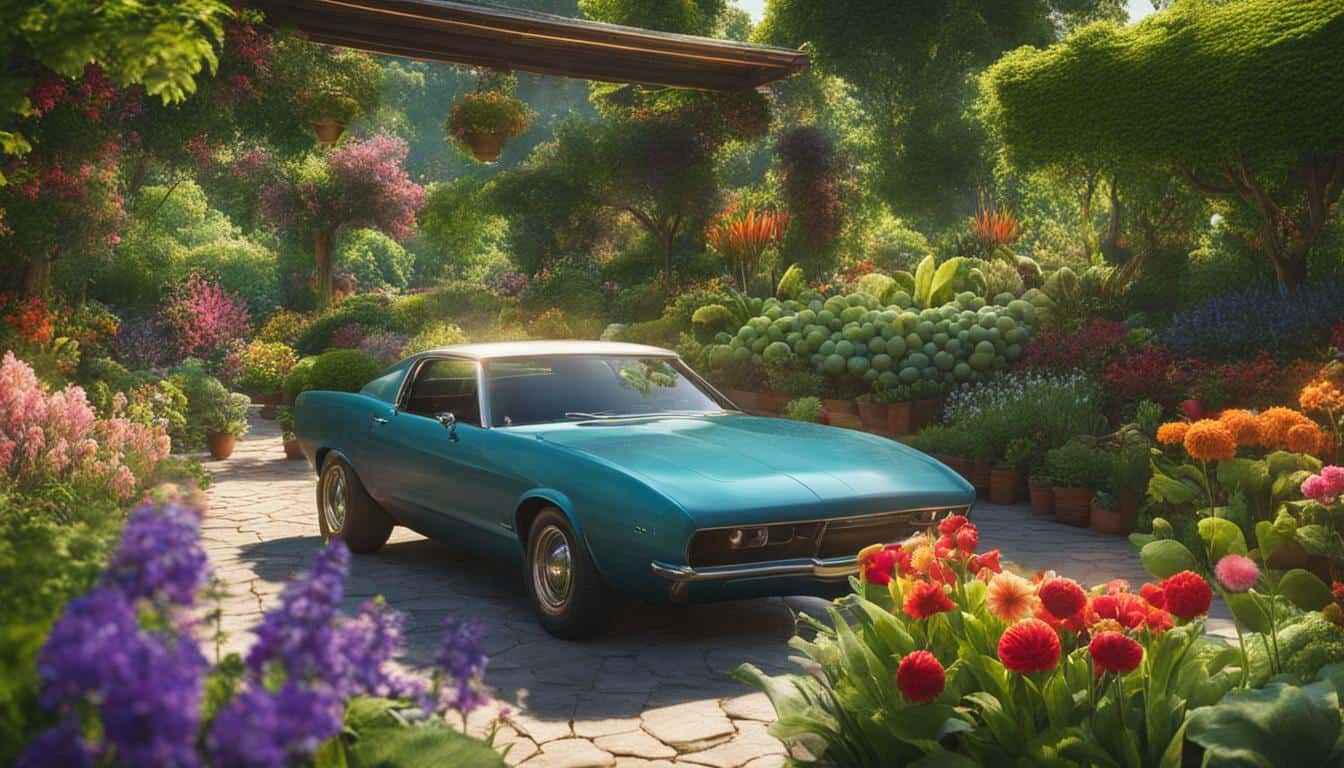
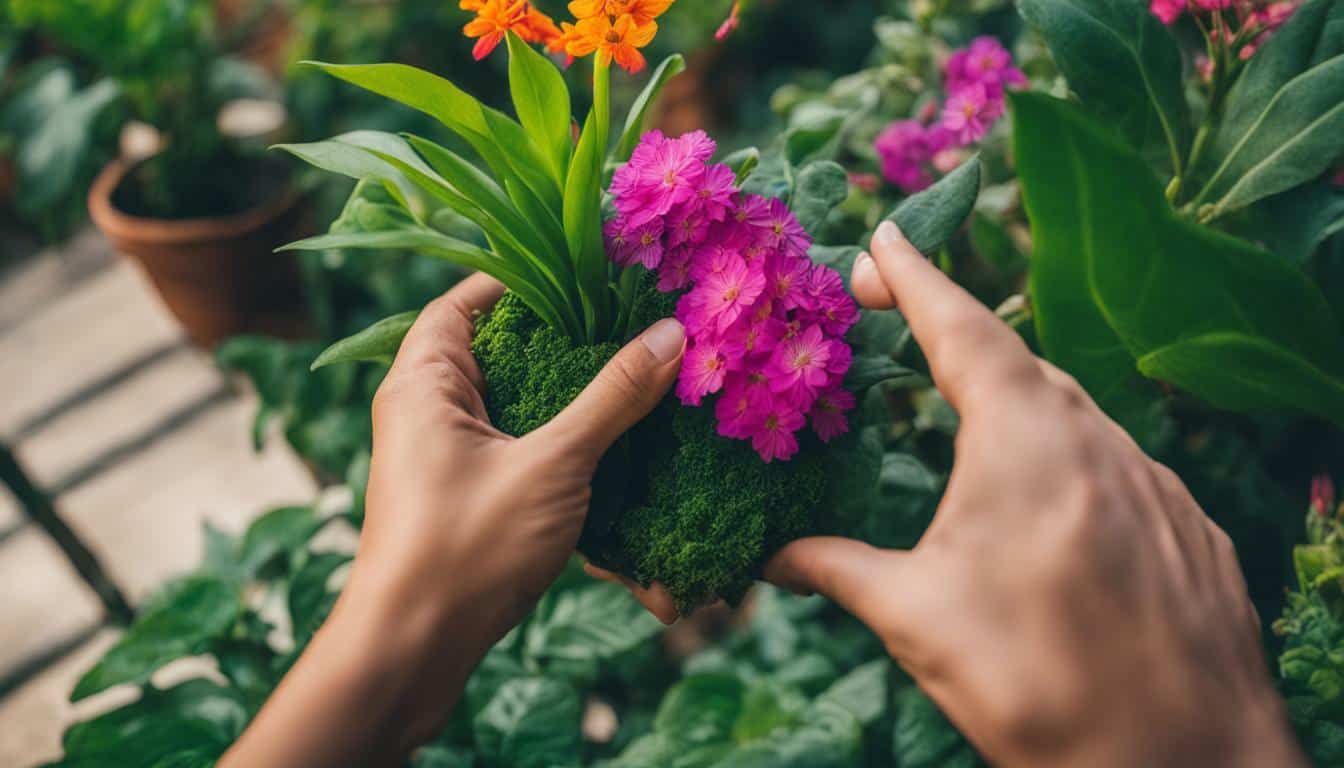
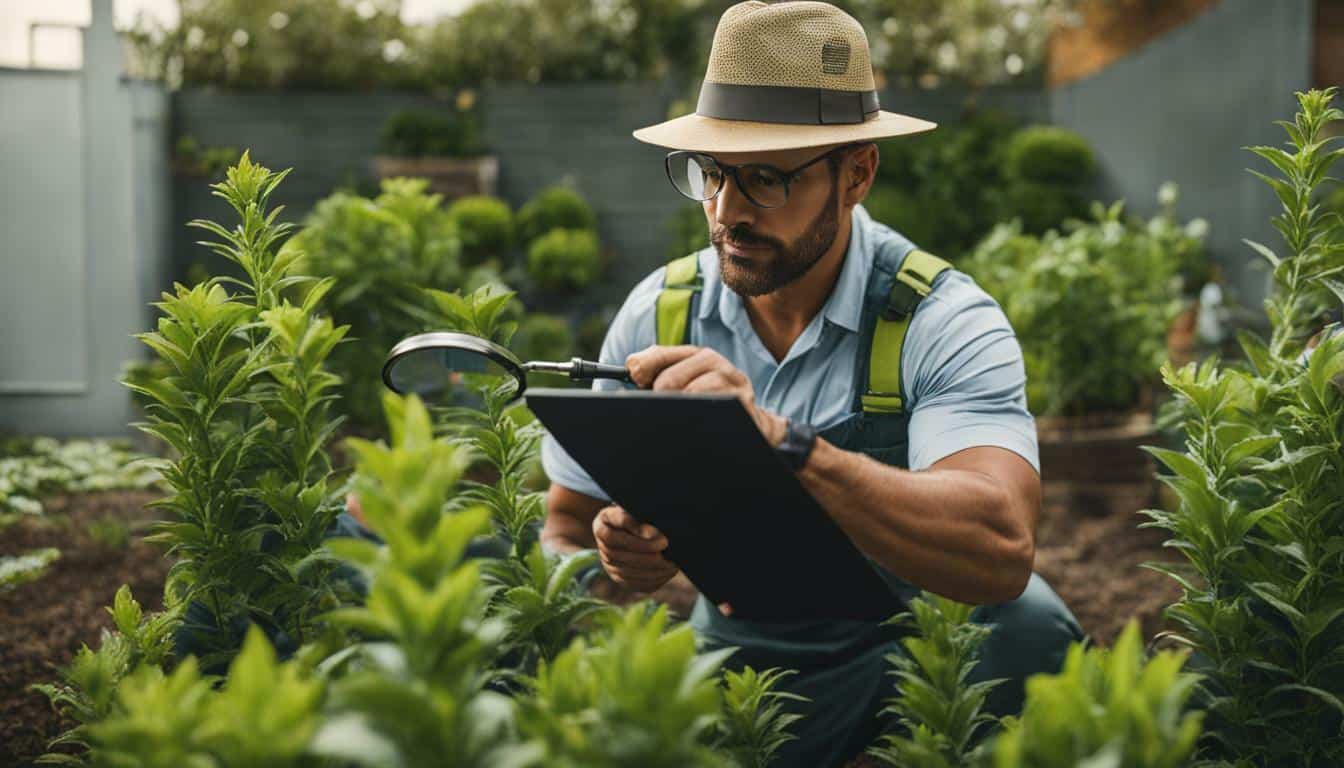

Leave a Reply